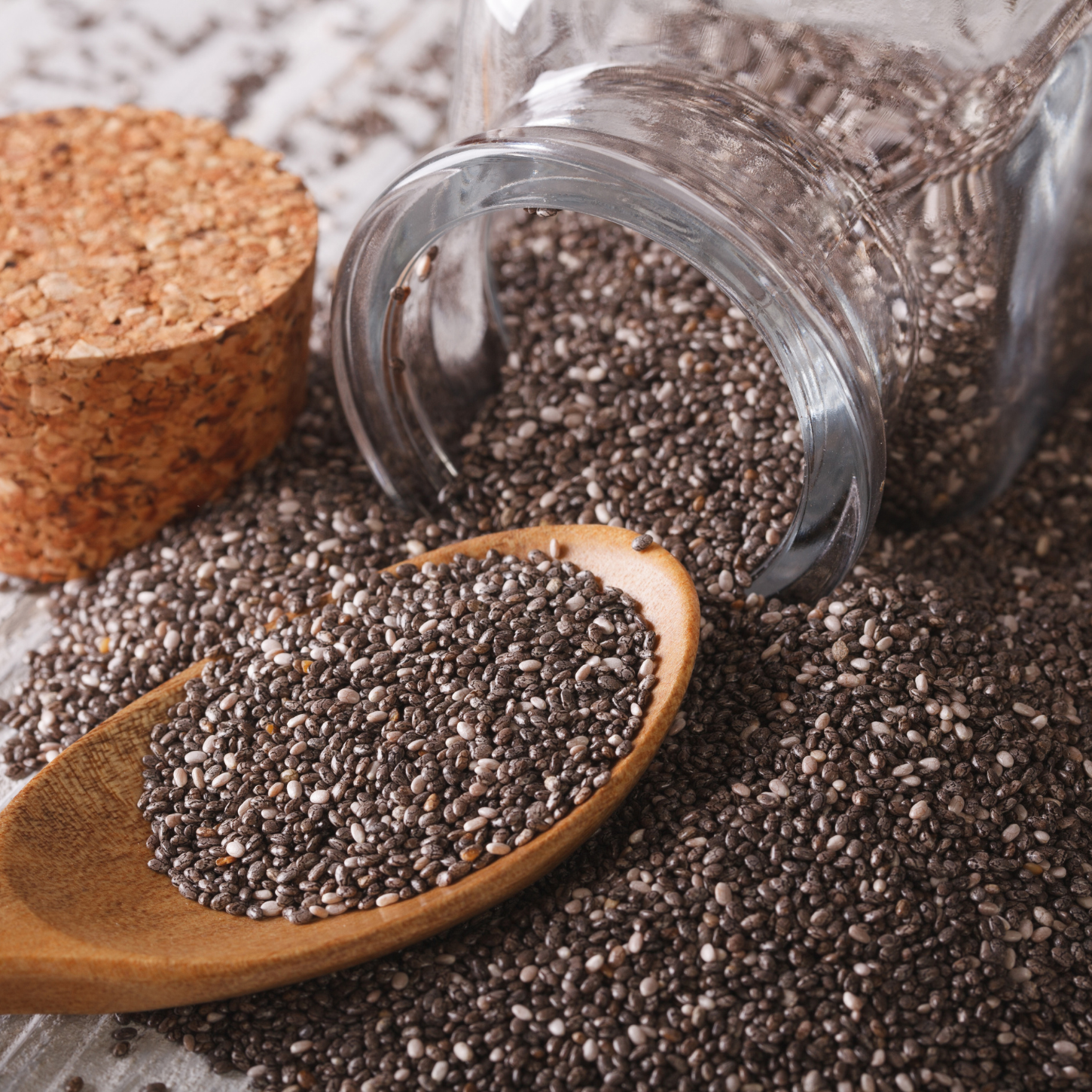There’s a remote town in Mexico called Urique, which has a famous ultramarathon called the Caballo Blanco. The course is 50 miles long and weaves itself through extremely unforgiving terrain.
What makes this ultramarathon so unique isn’t just the distance and the terrain, but the runners - local villagers who consist of anything from elderly women running in sandals to teenagers running in boots and jeans. All without proper training.
Ultramarathoners from around the world travel thousands of miles to join the locals and test their endurance in the rough canyon country.
The Mexican Tarahumara tribe, whose running prowess was profiled in Christopher McDougall's bestseller 'Born to Run,' knows what’s up. Their incredible stamina is not just a ‘running’ testament to the power of endurance: they may also have tapped into an innovative solution for sustaining those long-distance runs that can go up to 200 miles (320km) in one session!
As it turns out, before each run, these runners drink a mixture of chia seeds, lemon, and water which they call Iskiate. Iskiate, they claim, is the ‘how’ to their epic endurance.
Interestingly, a study from 2011 which was published in the Journal of Strength and Conditioning Research, found that chia seeds can effectively provide athletes the fuel for optimal endurance, without containing the sugar that’s found in traditional sports drinks.
But the question is: do their benefits go further than just offering fuel for endurance athletes? Should we make them a staple in our diets?
In this article, we are going to discover the major benefits chia seeds can provide and what you can do to incorporate more chia into your life.
Table Of Contents:
What are Chia Seeds?
Chia seeds come from the plant Salvia hispanica L. and were an essential part of life in the pre-Columbian and Aztec eras. They not only served as a major food crop for Mexico and Guatemala, but they were also used for medicinal and religious purposes by the indigenous peoples.
Today, chia seeds are grown in several countries, including the United States, Australia, and South America (which produce 80% of the world's supply).
Chia seeds come in black and white varieties, but there is no significant difference in nutritional content. From yogurt and pasta to hamburgers and sports nutrition products, these tiny seeds are now a staple in many foods.
Chia Seed Nutrition
Chia seeds are putting in work with their nutrient profile—loaded with vegetable protein, lipids, carbohydrates, and dietary fiber, they're nutritionally dense like a boss. In just 1 tablespoon of chia seeds, you'll score 2.1 grams of ALA, (an omega-3 fatty acid), 4 grams of fiber, and 2 grams of complete protein containing all nine essential amino acids.
Most of the fat content of chia seeds are polyunsaturated fats, omega-3s – particularly alpha-linolenic acid (ALA) – as well as some omega-6s. The body converts ALA into EPA (eicosapentaenoic acid) and DHA (docosahexaenoic acid), which are the other two long-chain omega-3s.
Chia seeds are also a rich source of various vitamins and minerals, especially calcium (accounting for 18% of the RDA), as well as phosphorus, copper, and zinc. 
Health Benefits
Due to their impressive nutritional profile, chia seeds offer numerous health-boosting benefits.
1. Supports digestion
Chia seeds are an excellent source of fiber, both soluble and insoluble fiber, which improves the movement of stools through your bowels, adding bulk and preventing constipation. Eating enough fiber can reduce your risk for many digestive diseases, including colorectal cancer.
Soluble fiber provides the beneficial bacteria in the gut with the raw materials they need to produce short-chain fatty acids (SCFAs), which are the main source of nutrition for the cells in the colon. SCFAs have also been shown to reduce inflammation and the risk of inflammatory diseases, type 2 diabetes, obesity, heart diseases, and other chronic conditions.
The recommended minimum amount of daily fiber intake is 25 grams for women and 38 grams for men, and only 6% of Americans and less than 1 out of 10 adults in the UK obtain that amount. But adding a couple of tablespoons of chia seeds to your routine will get you well on your way to meeting your requirements.
2. Improves heart health
The omega-3 fatty acids in chia seeds can also protect your heart. Studies have shown that they can lower cholesterol and blood pressure, prevent blood clots, and reduce inflammation.
Chia seeds also contain quercetin, a potent antioxidant, which neutralises free radicals, combats oxidative stress and the risk for heart disease.
A 2012 meta-analysis which involved over 250,000 participants, found that those who consumed large amounts of ALA had a 10% decreased risk of heart disease.
The Nurses’ Health Study published in 2005 found that women who ate the highest amounts of ALA had a 40% decreased risk of sudden cardiac death. And the 2003 Cardiovascular Health Study which involved more than 5000 men and women over 65 years, found that those with the highest intakes of ALA had a 50% reduced risk of fatal ischemic heart disease.
3. Reduces inflammation
The ALA in chia seeds not only shields your heart but also plays a vital role in reducing inflammation. How? By acting as an antioxidant and scavenging free radicals, down-regulating pro-inflammatory cytokines, and enhancing the activity of several enzymes involved in the inflammatory processes.
Unchecked inflammation leads to serious problems in multiple systems of the body. It’s often referred to as the “silent killer” due to its insidious contribution to the pathology of many diseases. As such, it’s really no surprise that inflammation is the main reason people seek medical care and also the main cause of mortality.
4. Regulates blood sugar
Studies have even shown that adding chia to your diet can bring excellent blood sugar-regulating benefits.
Due to their high fiber content, chia seeds can assimilate up to 10-12 times their weight in water, turn thick, and swell in the stomach. This helps to build satiety and reduce food intake and calorie consumption. They also slow down digestion to fend off any post-meal spikes.
5. Supports bone health
Chia seeds are a rich source of various minerals, including calcium, phosphorus, and magnesium, all of which are important for maintaining bone health.
A study spanning 13 months showed that rats who chowed down on a diet featuring 10% chia seeds boasted significantly greater bone density compared to their low-calorie, chia-seed-free counterparts.
6. Boosts brain function
The omega-3 fats found in these tiny wonders, are essential for improved cognition and brain function and development through all stages of life.
They are abundant in the cell membranes of brain cells and help to facilitate communication between neurons. They also assist in the synthesis and function of neurotransmitters, support brain blood flow and aid in the growth of brain tissue.
Adequate omega-3 fatty acid intake also helps to reduce neuroinflammation and oxidative damage, as well as increase levels of brain-derived neurotrophic factor (BDNF), a key protein involved in changes related to learning and memory.
A recent study involving over 34,000 college students found that those who consumed 5 grams of chia seeds daily for 21 days outperformed the control group on an academic test.
7. May prevent cancer
Chia seeds may also be effective in preventing cancer. Loaded with powerful antioxidants and phenolic compounds, these tiny seeds help reduce the risk of various types of cancer by improving oxidation.
In fact, a 2013 study published in the Journal of Molecular Biology found that ALA can actually slow the growth of breast and cervical cancer cells and promote cell death without harming healthy cells. While more studies are needed, early results look promising.
Purchasing Chia Seeds
If you’re wondering whether chia seeds, like flaxseeds, should be consumed whole or ground, well, here's the scoop: chia seeds have a fragile surface that breaks apart when wet, making them great for recipes with liquids.
Plus, they're easily digested whole (not the case for flax seeds). However, if you're snacking on dry chia seeds, opt for ground chia seeds to boost absorption.
Chia seeds last for 4-5 years without refrigeration. Store in a cool, dry spot.
How To Enjoy Chia Seeds
There are many different ways you can enjoy chia seeds. You can add them to porridge, smoothies, cereals, and yogurt for breakfast or make chia pudding. You can sprinkle them on salads for lunch or stir them into your salad dressings. You can also use chia seeds as a substitute for eggs. Simply combine one tablespoon of chia seeds with 2 ½ tablespoons of water and let sit. After approximately 5 minutes, the chia seeds will have formed a gel which you can add to your baking to hold the mixture together.
Don't underestimate these tiny wonders - chia seeds are nutritional dynamos with plenty to offer. From fiber to protein, healthy fats to vitamins and minerals, chia seeds are an easy and convenient way to boost your diet's benefits. When incorporated as part of a varied plant-rich diet, chia walks the talk when it comes to disease prevention.
Recipe Spotlight: Tropical Chia Pudding
We love chia pudding because it is so versatile, and it can be prepared with different fruit juices, plant-based milks, spices, nuts, seeds, granolas, and fruits. The possibilities are endless! Enjoy!















What Do You Think? Comment Below: